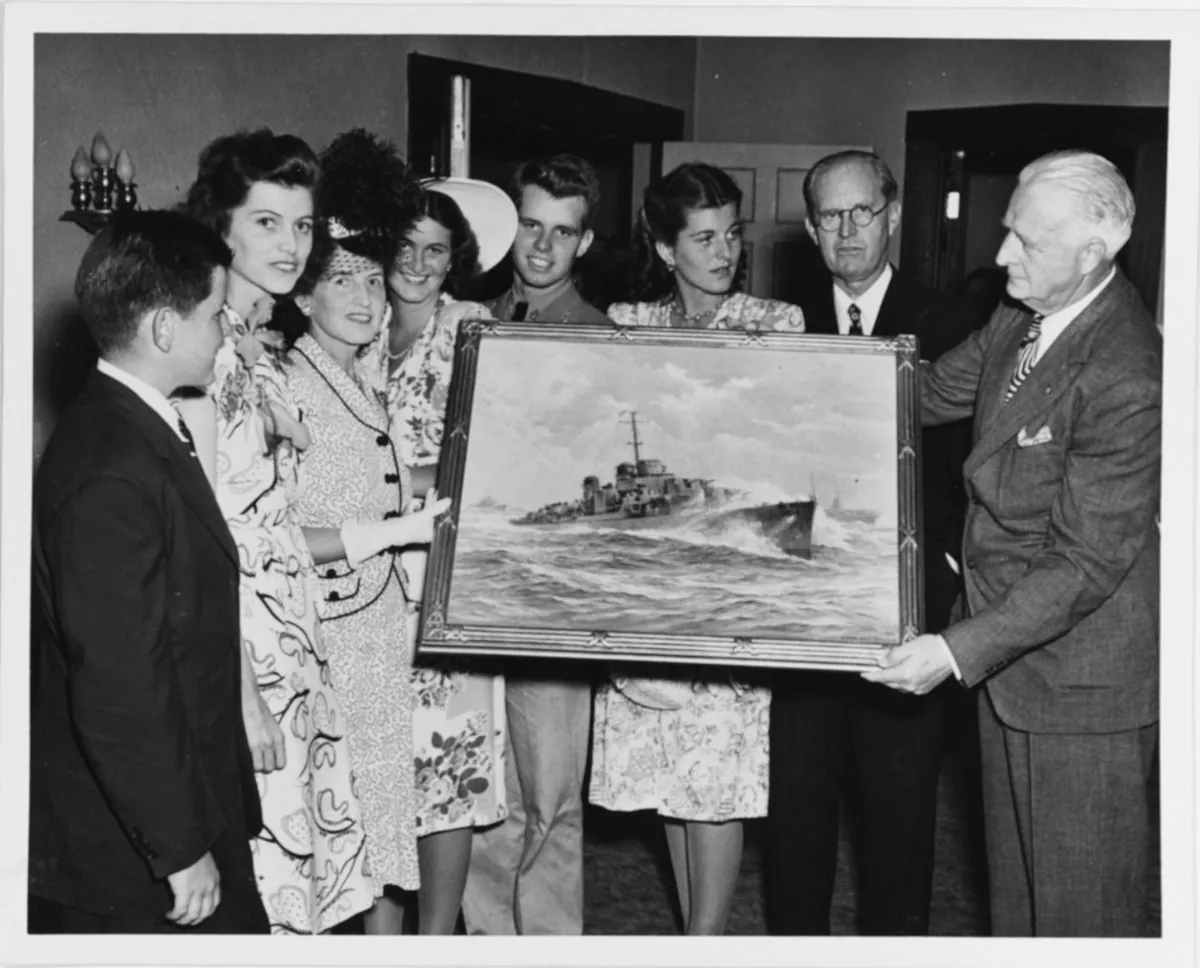Joseph P. Kennedy Jr.'s Fatal Mission: A Turning Point for America's Political Dynasty
80 years ago, Joseph P. Kennedy Jr. perished in a secret WWII mission, altering the course of one of America's most influential political families. His death marked the beginning of a series of tragedies for the Kennedys.

On August 12, 1944, a fateful mission claimed the life of Joseph P. Kennedy Jr., forever altering the trajectory of one of America's most prominent political dynasties. The eldest son of Joseph P. Kennedy Sr. and Rose Kennedy was just 29 years old when he volunteered for a perilous top-secret operation during World War II.
Kennedy Jr. took off from an air base in England in a B-24 Liberator bomber, converted into a crude but powerful drone. The aircraft was laden with Torpex, an explosive 50% more potent than TNT. The mission's objective was to remotely guide the plane into a suspected Nazi missile site in France, targeting the launch facilities for V-1 flying bombs that had been terrorizing London since mid-June 1944.
Approximately 18 minutes into the flight, Kennedy and his co-pilot, Lt. Wilford J. Willy, were to parachute out after transferring control to another aircraft. However, tragedy struck when the plane exploded over the English village of Blythburgh, leaving no survivors.

The loss of Joseph Jr. devastated the Kennedy family and marked the beginning of a series of tragedies that would plague them for decades. His younger brother, John F. Kennedy, who had gained recognition for his heroic actions during the PT-109 incident in the Solomon Islands a year earlier, was particularly affected by the loss.
"We realized there could be no hope and that our son was dead."
The Kennedy family, of Irish descent with roots in County Wexford, had long been involved in American politics. Joseph P. Kennedy Sr. had served as the United States Ambassador to the United Kingdom from 1938 to 1940, and the family harbored grand political ambitions for their children.
Joseph Jr.'s death shifted the family's focus to John F. Kennedy, who would go on to become the 35th President of the United States in 1960, fulfilling the promise once expected of his older brother. The Kennedy legacy in American politics would continue with Robert F. Kennedy serving as United States Attorney General and Edward "Ted" Kennedy serving in the U.S. Senate for nearly 47 years.
The term "Kennedy curse" emerged in the media to describe the series of tragedies that befell the family, including the assassinations of John and Robert, plane crashes claiming the lives of other family members, and the ill-fated lobotomy of Rosemary Kennedy in 1941.
Despite these hardships, the Kennedy family's influence on American politics has endured for over a century, beginning with John F. "Honey Fitz" Fitzgerald's election to Congress in 1895. Their story remains a compelling chapter in the nation's history, marked by both triumph and tragedy.


































